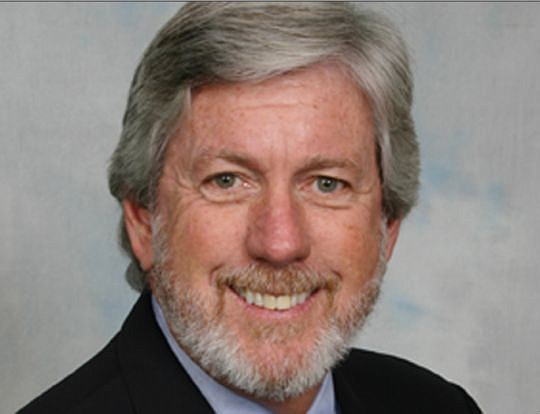
The state Supreme Court on Thursday rejected a Florida Bar proposal that would have allowed attorneys to accept referrals from for-profit groups.
Shortly after, Grier Wells’ phone started ringing. The text messages started coming.
“They were very congratulatory,” said the GrayRobinson shareholder. “I’m not sure why as to me.”
Wells led a statewide Bar committee in 2011 that reviewed those services after the governing organization received numerous complaints about the growing amount of advertising.
One need only look at buses, billboards, TV — even a Tampa amphitheater — the past five years or so to see how the services had sprung up, Wells said.
In Northeast Florida, those ads come from businesses like 1-800-ASK-GARY.
The 15-member state Bar group worked on its plan for more than a year, with Wells saying he spent five-10 hours a week on the effort. There were public forums. Testimonials and complaints from clients. Legal arguments from each side of the issue.
The Bar committee unanimously suggested that attorneys should not accept client referrals from a person, entity or service that also attempts to refer clients to other professional services for the same incident.
For example, if a referral service recommended a victim to an attorney in a personal injury case, it couldn’t also recommend a chiropractor or doctor for treatment. The committee noted the potential negative impact on the for-profit portions of the business, but went forward with the recommendation.
Ultimately, the group came up with seven recommendations. Six ended up being taken up by The Florida Bar. The other was tweaked.
The recommendation was amended — reversed, really — by a Bar review committee and passed on to the Bar’s board of governors, which approved it.
Wells said he wasn’t sure what the rationale behind the switch but was disappointed. He suggests the review committee didn’t have the benefit of hearing testimony and looked at the report “somewhat coldly” without hearing firsthand the public feedback.
However, the state Supreme Court didn’t hear such testimony, either — and it rejected the idea in its eight-page response Thursday.
Instead, the court said the board of governors needed to take that point a step farther than even the review committee did.
Its instruction: Amendments should be included that preclude lawyers from accepting referrals from any service not owned or operated by a Bar member.
“While the action we take today may be viewed by some as severe, we conclude it is absolutely necessary to protect the public from referral services that improperly utilize lawyers to direct clients to undesired, unnecessary or even harmful treatments or services,” according to the ruling.
Six of the seven justices concurred, with only Justice Charles Canady concurring in part and dissenting in part. He agreed with the majority of his peers, except he thought the Bar should be directed to take up the special committee’s recommendation.
Wells’ disappointment turned to delight at hearing Thursday’s decision.
“That was the spirit of what we were retrying to do,” he said.
On the other side were the for-profit referral services that could end up having more restrictions to its business model.
“We were obviously disappointed to see the court take the approach it did,” said Timothy Chinaris, who represents the 1-800-411-PAIN referral service.
Chinaris is associate dean for academic affairs and a professor of law at Belmont University, a former Florida Coastal School of Law founding faculty member and also served as The Florida Bar ethics director from 1989-97.
He said there were twice as many clients who were satisfied as those who weren’t that offered testimony and the industry already is regulated through existing rules.
Instead, Chinaris suggests the issue stems from competition from other attorneys who are unhappy and that the court had too much reliance on the initial committee report.
“Owners of referral services only want quality lawyers,” he said. “If not, they won’t stay in business.”
Chinaris said he’d like to see the “bad apples” giving the industry a bad name taken care of, but not at the expense of all types of for-profit referral services.
“We’re supposed to be a market economy … something like this really shuts that off without justification,” he said.
Chinaris said he and others would work with the Bar on what’s next.
Wells said he, too, would be available if needed but didn’t have a particular role.
He expects the issue to be a contentious one through early next year.
“It’s not going away,” he said.
The Florida Bar has been instructed to submit to the state Supreme Court a new petition on or before May 24.
@writerchapman
(904) 356-2466